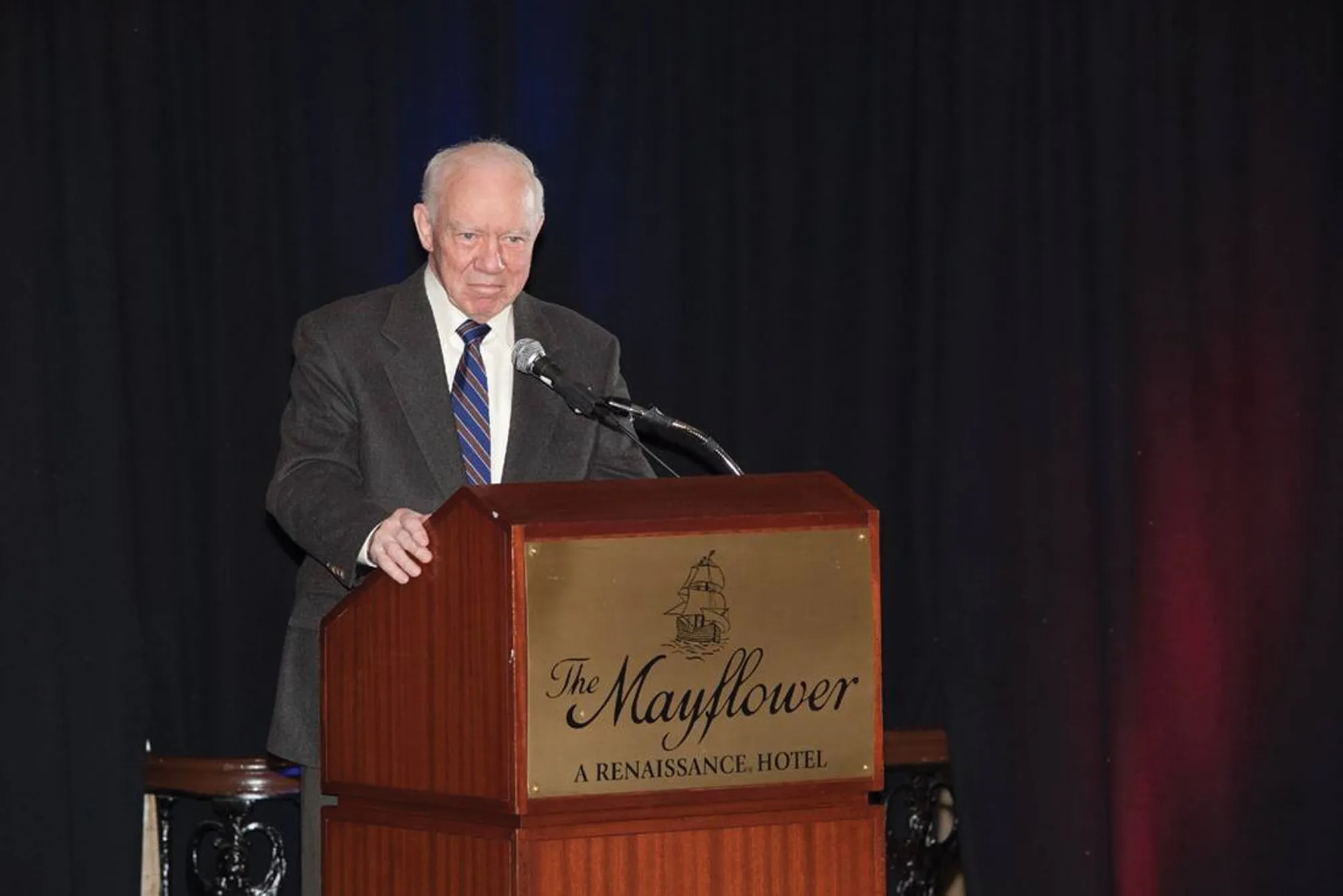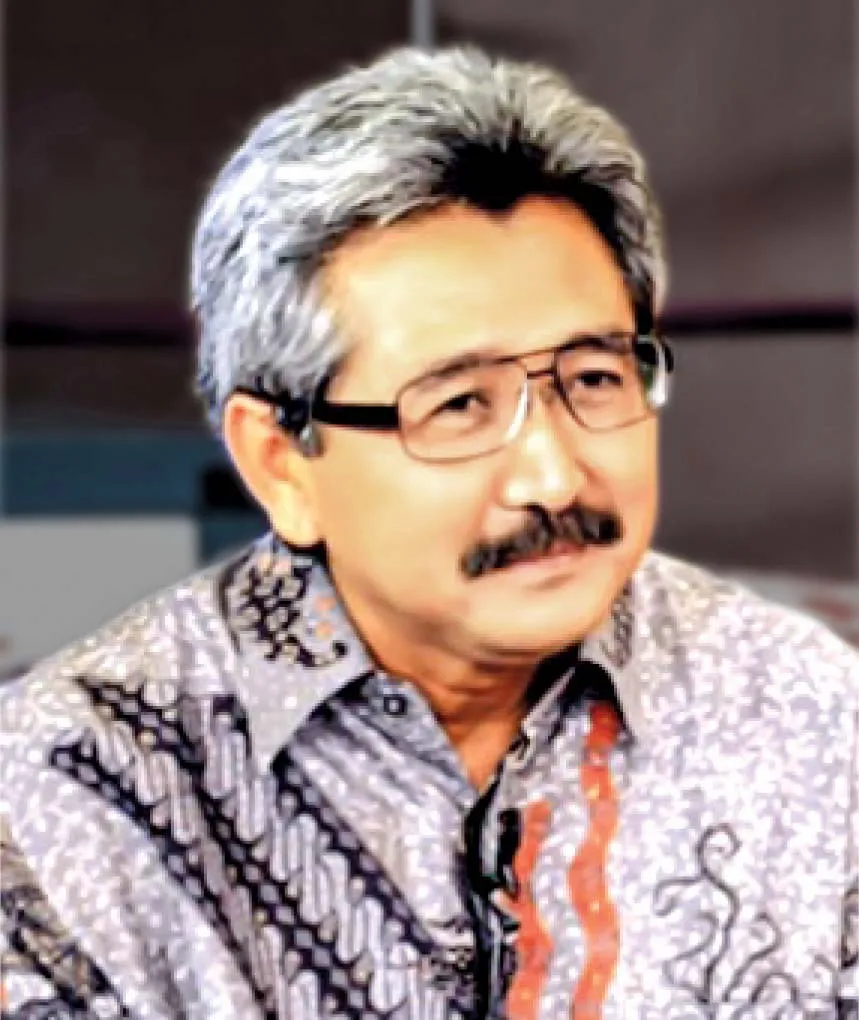Over 200 government officials, executives and road professionals gathered at IRF's Annual Awards Luncheon to honour the winners of the IRF Global Road Achievement Awards (GRAA). The GRAA programme was founded in 2000 to recognise leading projects and organisations from around the world.
February 9, 2012
Read time: 3 mins

Over 200 government officials, executives and road professionals gathered at 2462 IRF's Annual Awards Luncheon to honour the winners of the IRF Global Road Achievement Awards (GRAA). The GRAA programme was founded in 2000 to recognise leading projects and organisations from around the world. The IRF Awards Programme publicises the innovative, practical, creative, cost-saving and sustainable solutions the road industry provides throughout the world.
Brian Harris, IRF-Washington Chairman, welcomed guests and called attention to the fact that even though road builders provide the very foundation upon which society moves and connects, in large part, road builders are mostly unsung heroes. "We are all well aware of the current financial crisis and recession that many irresponsible people brought about. And we don't hear too much about those responsible paying for their mistakes," said Harris. "Instead, some of them are actually getting bonuses. Now, imagine if we as engineers had colossal failures of that magnitude. And indeed, it seems that some only pay attention to our industry when something goes wrong. Today we are here to recognise the great benefits the road industry provides to the economies and societies around the world." Keynote address Before the presentation of the winning projects, Congressman James L. Oberstar delivered a keynote address to the global audience. He is the Chairman of the House Transportation and Infrastructure Committee and is widely acknowledged as the body's leading expert on transportation policy.
After the Congressman made his opening remarks in several languages, he called specific attention to the epidemic of road fatalities.
"Today we understand that preventing accidents isn't just about the road design or the engineering, but it takes a collective effort that encompasses all aspects of the driver and the road," said Oberstar. "It is great that organisations like IRF can bring the industry together to help ensure our roads, and more importantly, our drivers are safe." Oberstar gave special mention to his home state of Minnesota for its Towards Zero Deaths programme and the success it has had in reducing fatalities on its roads.
"The Towards Zero Deaths programme demonstrates the lives that we can save by working together. I encourage us all to combine our efforts through organisations like IRF, to share our solutions so that we can save lives." IRF Fellows and Student Paper Competition Winners To conclude the IRF Annual Awards Luncheon, Jeff Reed, Chairman of the IRF Educational Foundation, announced the winners of the IRF Annual Student Paper Competition. This year, five winners from four universities were welcomed to the stage to receive their awards.
Before he announced the winners, Reed recognised the Fellows in the audience and lauded the IRF Fellowship Programme and its importance in providing educational opportunities across the world.
"The IRF Fellowship Programme has donated more than 8 million dollars in scholarship money to help engineers from across the world get a top-quality education. The IRF Fellows represent the best and the brightest of the future of the transportation industry." To conclude the event, Brian Harris encouraged all in attendance to submit their outstanding projects for IRF's 2010 GRAA competition, noting that the more projects IRF is able to recognise and publicise, the more recognition the transportation industry will receive worldwide.
Brian Harris, IRF-Washington Chairman, welcomed guests and called attention to the fact that even though road builders provide the very foundation upon which society moves and connects, in large part, road builders are mostly unsung heroes. "We are all well aware of the current financial crisis and recession that many irresponsible people brought about. And we don't hear too much about those responsible paying for their mistakes," said Harris. "Instead, some of them are actually getting bonuses. Now, imagine if we as engineers had colossal failures of that magnitude. And indeed, it seems that some only pay attention to our industry when something goes wrong. Today we are here to recognise the great benefits the road industry provides to the economies and societies around the world." Keynote address Before the presentation of the winning projects, Congressman James L. Oberstar delivered a keynote address to the global audience. He is the Chairman of the House Transportation and Infrastructure Committee and is widely acknowledged as the body's leading expert on transportation policy.
After the Congressman made his opening remarks in several languages, he called specific attention to the epidemic of road fatalities.
"Today we understand that preventing accidents isn't just about the road design or the engineering, but it takes a collective effort that encompasses all aspects of the driver and the road," said Oberstar. "It is great that organisations like IRF can bring the industry together to help ensure our roads, and more importantly, our drivers are safe." Oberstar gave special mention to his home state of Minnesota for its Towards Zero Deaths programme and the success it has had in reducing fatalities on its roads.
"The Towards Zero Deaths programme demonstrates the lives that we can save by working together. I encourage us all to combine our efforts through organisations like IRF, to share our solutions so that we can save lives." IRF Fellows and Student Paper Competition Winners To conclude the IRF Annual Awards Luncheon, Jeff Reed, Chairman of the IRF Educational Foundation, announced the winners of the IRF Annual Student Paper Competition. This year, five winners from four universities were welcomed to the stage to receive their awards.
Before he announced the winners, Reed recognised the Fellows in the audience and lauded the IRF Fellowship Programme and its importance in providing educational opportunities across the world.
"The IRF Fellowship Programme has donated more than 8 million dollars in scholarship money to help engineers from across the world get a top-quality education. The IRF Fellows represent the best and the brightest of the future of the transportation industry." To conclude the event, Brian Harris encouraged all in attendance to submit their outstanding projects for IRF's 2010 GRAA competition, noting that the more projects IRF is able to recognise and publicise, the more recognition the transportation industry will receive worldwide.








